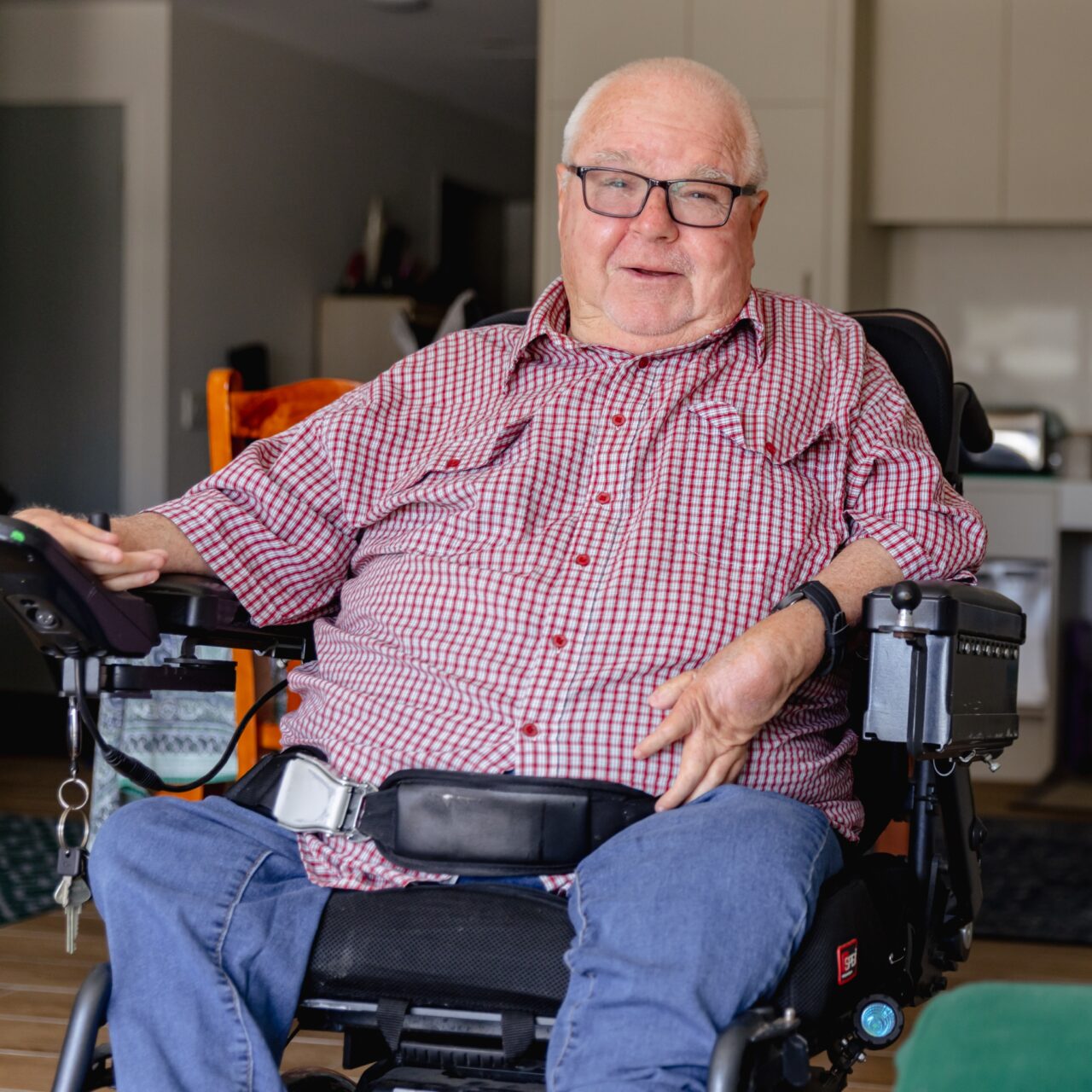Why Home Treatment Providers Are Essential for Comprehensive Special Needs Solutions and Assistance
Home treatment service providers play an important function in supplying thorough handicap solutions and assistance. They assist individuals with impairments in everyday living jobs, promoting independence and improving high quality of life. By producing individualized treatment plans, these specialists attend to one-of-a-kind needs, making certain effective interventions. However, their influence expands beyond functional support. Understanding the full extent of their contributions reveals much deeper ramifications for area inclusivity and assistance. What exists below this essential service?
Comprehending the Duty of Home Care Providers
Although numerous may think that home treatment companies mostly aid with standard day-to-day tasks, their duty incorporates a wider spectrum of assistance customized to people with handicaps. These specialists play an integral part in boosting the lifestyle for customers by providing support that prolongs past simple housekeeping or personal health. Home care service providers usually assist in social communication, helping to combat sensations of isolation that can go along with disability. They might also help with drug monitoring, guaranteeing that people abide by their recommended therapies efficiently. Furthermore, home care suppliers frequently help in coordinating consultations and transportation, promoting accessibility to necessary treatment. By cultivating independence and giving psychological support, they equip individuals to engage even more completely in their neighborhoods. This alternative method not only addresses physical requirements but likewise supports emotional and psychological wellness, showing the diverse nature of their considerable function in handicap solutions.
Tailored Care Program for Person Requirements
Tailored care plans are necessary for attending to the unique requirements of people with specials needs, ensuring that each customer receives individualized assistance. Home care providers collaborate with customers, households, and health care specialists to establish these extensive plans. By examining the specific challenges and preferences of each individual, carriers can recognize required solutions and treatments that align with their goals.These care plans think about different variables, consisting of physical health and wellness, psychological well-being, and social interactions. They may incorporate support with day-to-day activities, restorative services, or specialized devices. The participation of caretakers who recognize the subtleties of each customer's circumstance enhances the efficiency of these plans, promoting a much more encouraging atmosphere.

Enhancing Independence and Quality of Life
Enhancing self-reliance and lifestyle for people with disabilities calls for a concentrate on promoting everyday freedom. Personalized treatment remedies can empower clients to make choices that finest match their distinct demands and choices. disability support. By promoting this self-reliance, home care carriers play an essential function in improving general health and complete satisfaction
Supporting Daily Freedom
Equipping people with disabilities to accomplish day-to-day freedom greatly enhances their high quality of life. Home care suppliers play a crucial duty in this process by encouraging self-sufficiency and cultivating self-reliance. By supporting tasks of everyday living, such as personal health, dish preparation, and flexibility, caregivers help clients build self-confidence in their abilities. This support not just improves practical skills yet also promotes decision-making and analytic capacities. By respecting private preferences and choices, home treatment carriers grow a setting where customers really feel valued and equipped. The result is a substantial boost in self-esteem and total wellness, permitting people with impairments to navigate their day-to-days live with better ease and satisfaction. Inevitably, advertising everyday autonomy is essential for cultivating dignity and self-reliance.
Personalized Treatment Solutions
Customized care services are necessary in fulfilling the unique demands of people with handicaps, directly influencing their independence and lifestyle. These tailored methods consider each individual's choices, capabilities, and specific difficulties, making sure that support is both reliable and relevant. Home care service providers analyze private circumstances, producing customized strategies that address physical, emotional, and social needs. By fostering interaction and collaboration, caregivers equip customers to proactively take part in their very own treatment, promoting freedom. This not just enhances their self-worth but also encourages engagement in daily tasks. Eventually, individualized care solutions add to an extra satisfying and enriched life for people with impairments, enabling them to flourish within their neighborhoods and preserve dignity in their day-to-day experiences.
Connecting the Gap In Between Medical and Daily Care
Linking the gap in between medical and day-to-day care is necessary for individuals with handicaps. A collaborated care method can boost individualized day-to-day aid, ensuring that clients receive both clinical assistance and day-to-day assistance customized to their demands. This combination ultimately causes a better top quality of life for those getting home care services.
Coordinated Care Method
A coordinated treatment strategy is critical for effectively integrating clinical services with everyday living assistance for people with disabilities. This method promotes partnership among health care experts, caregivers, and households, making sure that all facets of a person's treatment are synchronized. By assisting in communication in between medical carriers and home care team, the coordinated approach lessens spaces in service delivery and improves the overall quality of treatment. This harmony permits timely treatments, decreasing healthcare facility readmissions and boosting health end results. In addition, it equips individuals with handicaps by supplying an alternative assistance system that resolves both medical needs and basics day-to-day living challenges. Ultimately, a worked with treatment approach is crucial for promoting self-reliance and boosting the lifestyle for those with handicaps.
Personalized Daily Assistance
Effective day-to-day help plays a vital role in linking treatment with the everyday requirements of people with disabilities. Home treatment carriers customize their services to meet the distinct needs of each individual, guaranteeing that personal care, meal preparation, and house tasks are handled efficiently (home care provider). This individualized strategy not only helps with adherence to prescribed clinical regimens yet likewise empowers people to maintain a level of independence. Caretakers are trained to identify and attend to details difficulties that customers face, linking the gap between clinical appointments and day-to-day living. By integrating clinical understanding with practical support, these service providers improve the total effectiveness of care, ensuring that individuals get alternative assistance that incorporates both their health and everyday living demands
Boosted Lifestyle
While clinical care is vital for people with specials needs, it is the combination of day-to-day living assistance that genuinely improves their lifestyle. Home care carriers bridge the gap between clinical focus and daily requirements, using customized help that advertises independence. By addressing personal treatment, home tasks, and social interaction, these carriers produce an environment favorable to health. This all natural technique not only help in physical health and wellness yet also fosters emotional security and social links. When individuals obtain personalized assistance, they experience increased confidence and enhanced mental health, resulting in higher life fulfillment. Eventually, home treatment solutions encourage individuals with specials needs to lead satisfying lives, making them an indispensable component of thorough impairment services and assistance.
The Significance of Trained Specialists

Structure Solid Relationships With Families and clients
Developing solid connections with customers and their families is essential for improving the total top quality of home care solutions. Home care service providers who prioritize interaction and trust fund promote an environment where customers feel risk-free and valued. This link enables caretakers to much better recognize specific needs and preferences, leading to even more customized care strategies.Moreover, involving member of the family in the treatment procedure assists ensure that everyone is lined up on objectives and assumptions. Routine updates and open discussions produce a sense of collaboration, which can develop and relieve worries confidence in the care being provided.Confident clients and family members are more most likely to engage proactively in the care plan, resulting in improved wellness end results. In addition, solid partnerships motivate comments, enabling service providers to continually adjust and improve their services. Inevitably, these bonds lay the foundation for a supportive, considerate, and efficient home treatment experience.
Supporting for Civil Liberties and Availability in the Community
Promoting for the civil liberties and availability of people with handicaps within the community is necessary for promoting a comprehensive atmosphere. Home care service providers play a critical duty in this advocacy by increasing awareness of the obstacles dealt with by individuals with disabilities. They team up with local companies, government agencies, and stakeholders to advertise policy modifications that improve accessibility to services and public spaces.These service providers likewise empower customers by notifying them of their legal rights and available resources, motivating self-advocacy. This support not only improves private lives yet likewise grows a culture of inclusivity in the neighborhood. By actively participating in campaigning for efforts, home care providers aid dismantle preconception and discrimination, ensuring that individuals with specials needs can take part totally in society.Ultimately, the dedication of home treatment carriers to promote for civil liberties and ease of access contributes significantly to the advancement of a more encouraging and equitable area for all.
Regularly Asked Questions
What Credentials Should I Look for in a Home Treatment Provider?
When examining a home treatment provider, one need to think about qualifications such as pertinent dig this accreditations, experience in specific care needs, strong communication abilities, history checks, and positive referrals to ensure high quality and safety and security in caregiving.
Exactly How Do Home Care Services Differ From Traditional Nursing Care?
Home treatment solutions concentrate on personalized help within clients' homes, cultivating self-reliance, while standard nursing care generally entails clinical interventions in clinical settings. This distinction highlights individualized support versus institutionalized clinical therapy for various requirements.
What Is the Regular Cost of Home Care Providers?

How Can I Find a Trustworthy Home Care Company?
Discovering a credible home care company involves looking into regional options, reading evaluations, inspecting qualifications, and seeking recommendations from medical care specialists or pals. It's vital to interview potential companies to guarantee they fulfill details treatment requirements.
What Insurances Typically Cover Home Treatment Solutions?
Insurance coverage for home treatment services frequently consists of Medicare, Medicaid, and exclusive medical insurance plans. Each policy differs, so individuals must consult their insurance provider to comprehend specific benefits and protection information related to home care solutions. Furthermore, home care suppliers frequently aid in working with appointments and transport, promoting access to necessary medical treatment. By facilitating communication in between clinical suppliers and home care personnel, the coordinated technique minimizes spaces in solution delivery and boosts the general top quality of treatment. Home care providers tailor their services to meet the distinct demands of each individual, ensuring that personal treatment, dish prep work, and household tasks are taken care of effectively. Home care services concentrate on tailored aid within customers' homes, cultivating self-reliance, while traditional nursing treatment typically includes clinical interventions in clinical setups. The typical price of home care solutions differs widely, depending on variables such as area, level of treatment needed, and period of service.